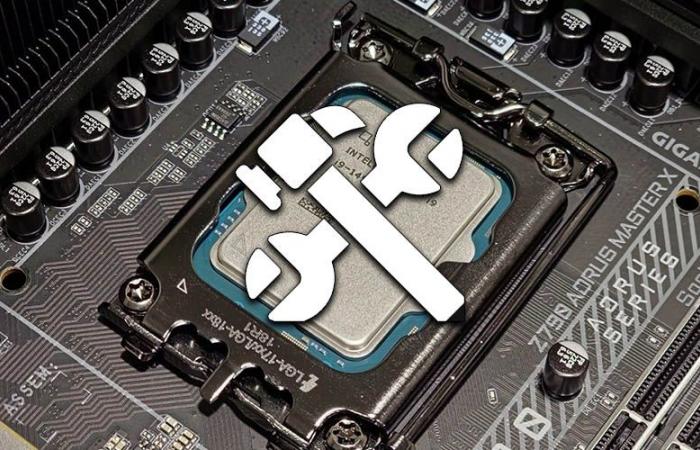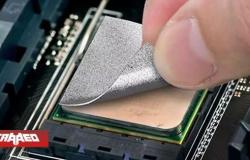It seems that we already have an end to the soap opera
stability problems in Intel Core CPUs
through a BIOS. It must be remembered that the latest range of Core i9 processors, from 13th and 14th Gen, presented stability problems. To be more exact, the company’s most powerful processors, the Core i9 13900K/KS and 14900K/KS, were causing problems for gamers. From error messages or the game closing, to resulting in erratic performance.
The problem went viral when NVIDIA itself pointed out Intel for all the performance problems in its games. It was NVIDIA that investigated the performance problem of thousands of gamers with a GeForce GPU, to the point of discovering that their GPUs were not the culprit, but Intel CPUs. Thus, NVIDIA referred its users to Intel to demand a solution. And yes, it seems that after months of this problem becoming known, the solution is already arriving.
Intel and the BIOS that will fix the root of the stability problems of its 13th and 14th Gen Core CPUs
Many motherboard manufacturers released their own BIOSes in an attempt to resolve stability issues in Intel CPUs. When it comes down to it, these updates only
limited CPU performance to avoid that point of high performance that ended up leading to stability problems during operation.
According to a leaked document under embargo from Intel, we already know where the problem is and how to solve it. Specifically, the stability problem is linked to an erroneously established value within of the microcode algorithm for eTVB (Enhanced Thermal Boost Velocity).
“The cause is an incorrect value in a microcode algorithm associated with the eTVB function. Implication, the increase in frequency and voltage corresponding to high temperature can reduce the reliability of the processor. Affected platforms Raptor Lake-S, Raptor Lake Refresh- S (CPUID 0xB0671)”. Indicates the document leaked by Igor’sLAB.
“Failure analysis (FA) of the 13th and 14th Generation Core K processors indicates a change in the minimum operating voltage on the affected processors as a result of cumulative exposure to elevated core voltages.
Intel analysis has determined that a confirmed factor contributing to this issue is the input of a high voltage to the processor due to previous BIOS settings that allow the processor to operate at turbo frequencies and voltages even when the processor is at high temperature. “Previous generations of Intel K processors were less sensitive to these types of settings due to the lower default operating voltage and frequency.”
Intel half-denies the leaked information


After the information was made known, a company executive, Thomas Hannaford, Director of Communications at Intel Corporation, denied this information. Now, halfway. The leaked information is actually true. That is to say, a problem in the eTVB does not reduce the voltage or frequencies even though the CPU reaches a temperature limit. In addition to this problem, Intel indicates that
this is not the main cause of the stability problem. In this way, in addition to said problem that has been found, they are still looking for the root of all their problems.
“Contrary to recent media reports, Intel has not confirmed the root cause and is continuing to investigate, along with its partners, user reports of instability issues on 13th and 14th generation Intel Core processors (K /KF/KS) unlocked for desktop computers.
The microcode patch referenced in press reports fixes an eTVB bug discovered by Intel while investigating reports of instability. Although this problem may contribute to instability, it is not the main cause.”








